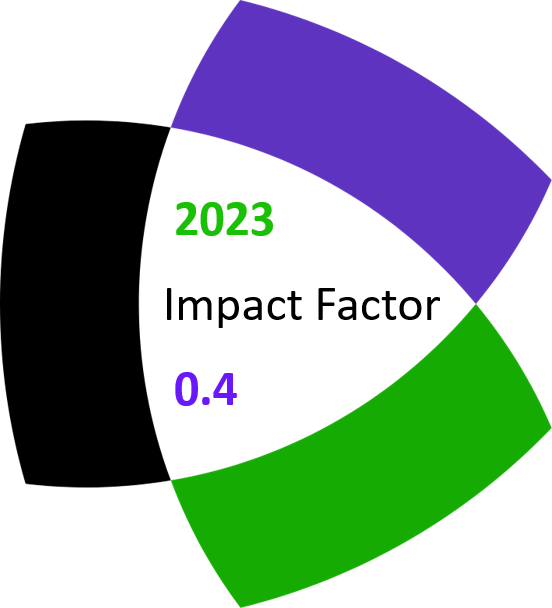Neşe Ömür and Sibel Koparal
Notes on Number Theory and Discrete Mathematics
Print ISSN 1310–5132, Online ISSN 2367–8275
Volume 26, 2020, Number 1, Pages 191-198
DOI: 10.7546/nntdm.2020.26.1.191-198
Full paper (PDF, 168 Kb)
Details
Authors and affiliations
Neşe Ömür ![]()
Department of Mathematics, University of Kocaeli
41380 Izmit, Kocaeli, Turkey
Sibel Koparal ![]()
Department of Mathematics, University of Kocaeli
41380 Izmit, Kocaeli, Turkey
Abstract
In this paper, we define hyper-dual generalized Fibonacci numbers. We give the Binet
formulae, the generating functions and some basic identities for these numbers.
Keywords
- Second order linear recurrence
- Hyper-dual generalized Fibonacci number
2010 Mathematics Subject Classification
- 11B50
- 11A07
- 11B68
References
- Akkus, I., & Keçilioğlu, O. (2015). Split Fibonacci and Lucas octonions, Adv. Appl. Clifford Algebras, 25 (3), 517–525.
- Keçilioğlu, O., & Akkus, I. (2015). The Fibonacci octonions, Adv. Appl. Clifford Algebras, 25 (1), 151–158.
- Akyiğit, M., Köksal, H. H., & Tosun, M. (2014). Fibonacci generalized quaternions, Adv. Appl. Clifford Algebras, 24, 535–545.
- Clifford, W. K. (1873). Preliminary sketch of bi-quaternions, Proceeding of London Mathematical Society, 4 (64), 65, 361–395.
- Cohen, A., & Shoham, M. (2017). Application of hyper-dual numbers to rigid bodies equations of motion, Mechanism and Machine Theory, 111, 76–84.
- Cohen, A., & Shoham, M. Application of hyper-dual numbers to multi-body kinematics, ASME J. Mech. Robot, doi:10.1115/1.4030588.
- Kılıç, E., & Stanica, P. (2009). Factorizations and representations of second order linear recurrences with indices in arithmetic progressions, Bulletin of the Mexican Mathematical Society, 15 (1), 23–36.
- Fike, J. A. (2009). Numerically exact derivative calculations using hyper-dual numbers, 3rd Annual Student Joint Workshop in Simulation-Based Engineering and Design, 18 June 2009.
- Fike, J. A., & Alonso, J. J. (2011). The development of hyper-dual numbers for exact second-derivative calculations, 49th AIAA Aerospace Sciences Meeting, 4-7 January 2011, Article No. AIAA 2011-886, 17 pages.
- Fike, J. A., Jongsma, S., & Alonso, J. J. (2011). E van der Weida, Optimization with gradient and Hessian information calculated using hyper-dual numbers, 29 AIAA Applied Aerodynamics Conference, Honolulu, Article No. AIAA 2011-3807, 19 pages.
- Akkus, I., & Kızılaslan, G. (2018). On some properties of Tribonacci quaternions, An. Stiint. Univ. Ovidius Constanta Ser. Mat., 26 (3), 5–20.
- Halıcı, S. (2015). On Fibonacci quarternions, Adv. Appl. Clifford Algebras, 25, 577–590.
- Horadam, A. F. (1963). Complex Fibonacci numbers and Fibonacci quaternions, American Math. Monthly, 70, 289–291.
- Iyer, M. R. (1969.) Some results on Fibonacci quaternions, The Fibonacci Quart., 7 (2), 201–210.
- Nurkan, S. K., & Güven, I. A. (2015). Dual Fibonacci quaternions, Adv. Appl. Clifford Algebras, 25, 403–414.
- Veldkamp, G. R. (1976). On the use of dual numbers, vectors and matrices in instantaneous, spatial kinematics, Mechanism and Machine Theory, 11 (2), 141–156.
- Yaglom, I. M. (1979). A Simple Non-Euclidean Geometry and Its Physical Basis, Springer- Verlag, New York.
Related papers
Cite this paper
Ömür, N., & Koparal, S. (2020). On hyper-dual generalized Fibonacci numbers. Notes on Number Theory and Discrete Mathematics, 26(1), 191-198, DOI: 10.7546/nntdm.2020.26.1.191-198.


